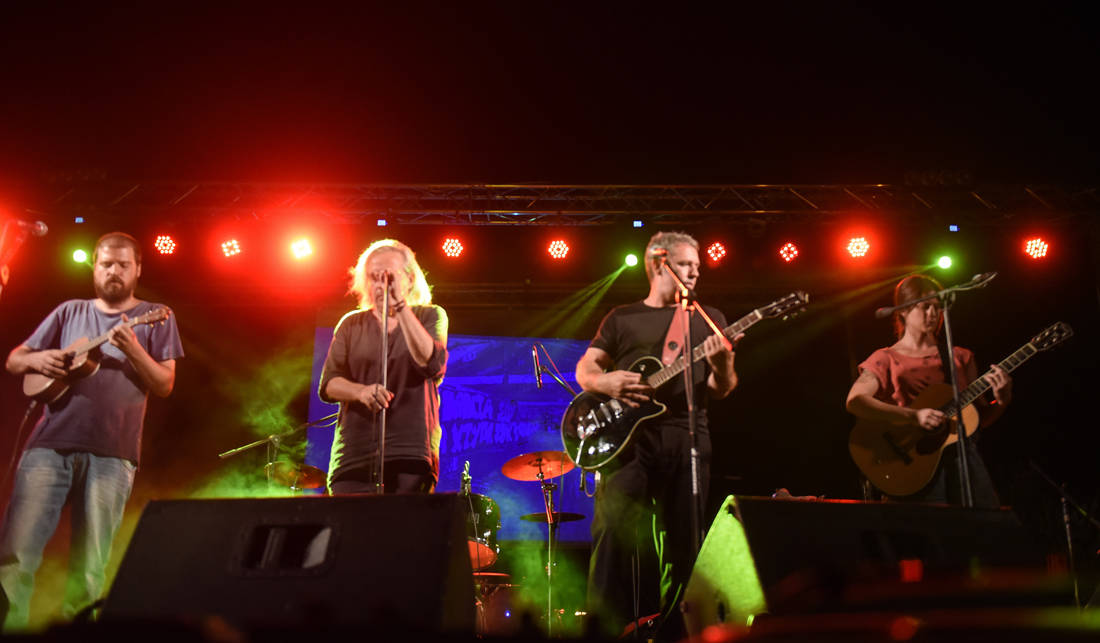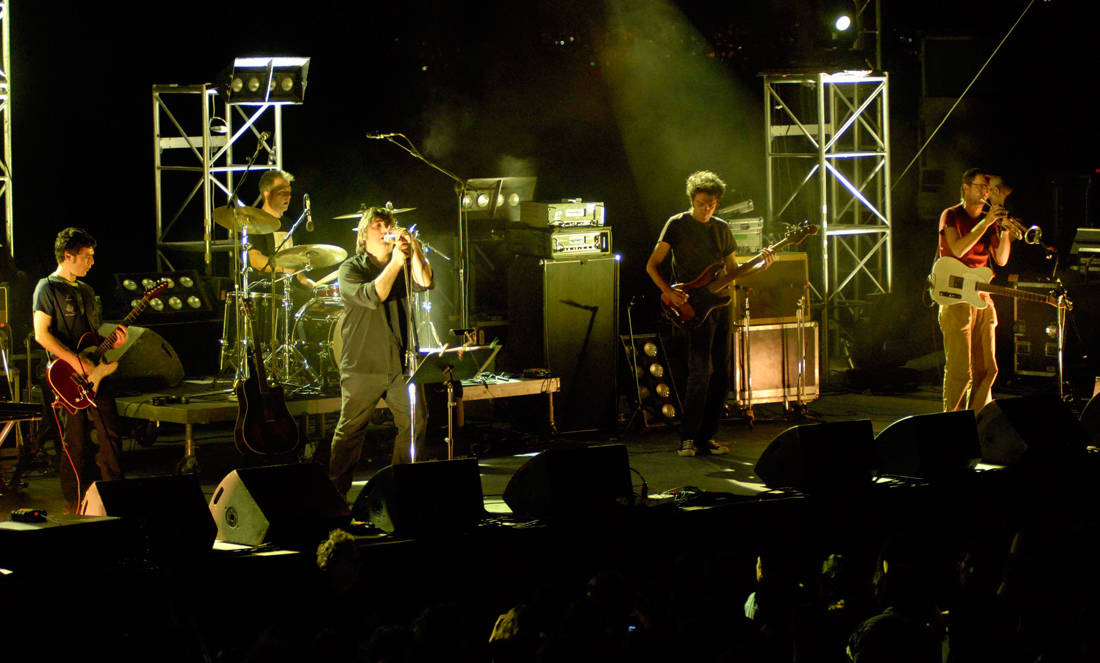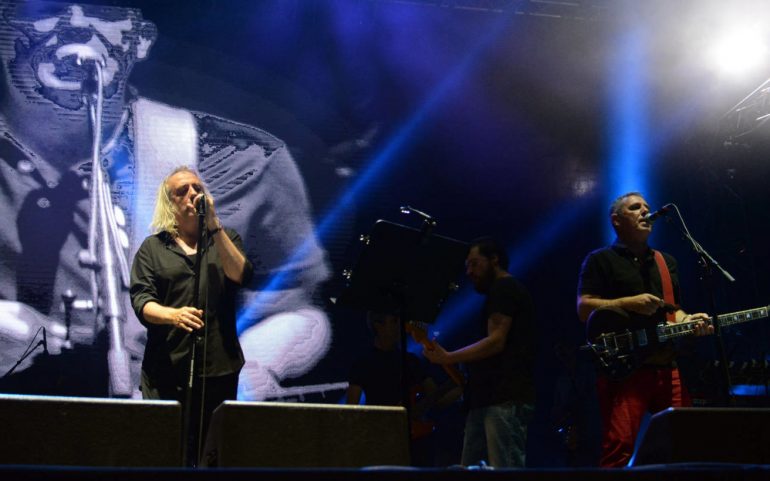Rock music counts some decades of life worldwide, as its genesis is located in the West some years after World War II, springing from the artistic paths of blacks. USA and blues, but also the search by the youth of the time for new ways of expression and reaction.
Greece, of course, started to deal with the genre a few decades later due to a different musical tradition and an inherent relationship with the East and its styles. Hence the notion that rock has nothing to do with "our culture" and that it is a western, foreign music.
The first attempts of Greek artists in rock streets, in most cases resembled imitations of foreign sounds and behaviors. However, there were also attempts that stood out from the crowd and paved the way for authentic artistic creation.
After all, Greece can be "proud" that it has taken him out Demi Rousso and Vangelis Papathanassiou (Aphrodite's Child) and the more electric Socrates later. Few, however, dared to escape the "convenience" of English lyrics, thus giving credibility to the argument that "rock is something foreign."
The "Hellenization" of rock
After the "winter" of the seven-year junta, during which there were a few respectable and other monumental artistic attempts, the change of government gave a new impetus to music. Consequently, in the decades that followed, an enlarged music scene was formed that represented many rock trends.
Especially in the 80's, it developed in parallel with the mainstream music industry, an underground scene that wanted to challenge the dominant art and criticize the "convenience" of the former fighters of the '70s and the collapse of old visions.
Common to many bands of the time is that they chose to express themselves through the Greek language, landing in the local reality what they wanted to say and giving a more intimate dimension to rock.
The "Big Bang" and the reactions
Every rock story has a conflict. Giannis Aggelakas stated about two years ago that the big bang of Greek rock was in '93 with the release of "Nine Paid Songs" (Holes) and "Thessaloniki" (Wooden Swords).
The interview with Pavlos Pavlidis had provoked reactions from "old" rockers, among them Dimitris Poulikakos and Johnny Vavouras.

In their interview, the two artists specifically said: "If the dads of rock are Sidiropoulos and Poulikakos and generally that generation, with Swords and Holes, what happened was that rock passed to larger audiences. It was a big bang… ".
"It is clear that the Holes have knocked down the wall. "This music suddenly started to really concern a lot of people", added Pavlidis.
Modern rock: the "prince" and the "goblin"
One could not speak of modern Greek rock without referring to its forerunner and "prince". This was none other than Pavlos Sidiropoulos.

Perhaps the most charismatic and emblematic persona of the Greek undergound scene, Sidiropoulos began his career in the mid-70s. In 1977, the legendary rock band Spyridoula was created, which appeared in a dead era, leaving behind the landmark album "Flu".
In 1979 the Unadapted were the second and last band of Pavlos Sidiropoulos until his death on December 6, 1990. Sidiropoulos' personal demon did not allow him to continue his creation, but the sound of his voice is still moving to this day.
If Pavlos can be characterized as the Patriarch of contemporary rock music in Greece, there is in history a weed that chose to cauterize and satirize the social and political reality of the place and to build its own school of performance.
Around 1980, the owner of the pub "Skylab", in Plaka, invited the then 26-year-old Tzimis Panousis and his company to play in his shop. This is how the Music Brigades were born.
Panousis presented a combination of satire, a mixture of elementary and rock in his rhythm and managed to engage the audience in various ways, until his death on January 13, 2018.

The wild '80s
The 80's proved to be one of the most critical in modern Greek history with the rapid transformation of society, the denial of expectations but also the opening to foreign influences - with the simultaneous consolidation of the country's participation in the EEC - to affect reality at the level everyday life and more.
Rock begins to enter its adolescence and the band that would mark the underground scene makes its appearance: the Holes. They were formed at the beginning of the decade by the bassist George Karras and the well-known and not exceptional Yannis Angelaka and completed their journey in 2000, leaving behind some of the most recognizable songs of the rock scene.
The Holes made their debut with an album of the same name in 1985, placing a musical style somewhere between punk, garage and authentic rock, while using poetic lyrics and without the fear of becoming a little more disrespectful. They managed to create their own idiom, accompanied by excellent musicians, with the "wooden" bass of Karras ringing in the ears like the raw sound of the New Model Army and the eternal swing of Angelakas around the microphone is the trademark of the concert.

Their second album "Party on the 13th Floor" is today one of the five best rock albums of all time in Greece. Their concert appearances are many, but there were some moments that stood out. In 1994 the Holes appear for the first time at the iconic London Marquee and in 1995 they performed at Peace and Friendship Stadium with thousands of people going crazy. Those who were lucky enough to watch the live realized that the Holes phenomenon had already grown and that the data of the music industry had changed.
Giannis Aggelakas in a live had said the legendary "Rodon": "They say that there is no rock and that everyone is crowded in the taverns. "All of you here tonight are denying them."
Rock for larger audiences
In 1987 they released their first album Babies in Fire, a band in which Pavlos Pavlidis participates. Their sound is more "underground" and "raw", the Greek lyrics with the socio-political content and the idiosyncratic vocals established the band as one of the most influential of Greek rock and helped to increase the popularity of the music current.
1989, c Pavlos Pavlidis, after his participation in Babies in Fire, he goes to France and lives with his friend Nikos Kantaris in Mériel, an area near Paris. There they create the studio Brancaleone and Pavlidis records the first demos of his songs. In Paris he also met Giannis Mitsis who would later become a member of the band. This is how the Wooden Swords were born.
The Wooden Swords had a simpler, more electronic and recognizable sound, with a rhythm that stays in the mind. The same goes for the voice of Pavlidis, who after so many years continues to occupy the music news.
The band lasted for about ten years and reached large audiences, recording success from their first album. Even today tracks like "Melted Ice Cream", "The King of Dust", "Adrenaline" are heard with the same interest and are considered classics for the domestic music scene.
The most melancholy form of rock
If the 80's had a certain innocence, the '90s found the world changed and Greece entering a new period, which did not lack conflicts and searches at the political and social level. The field of music could not be different.
Rock was entering another maturity, retaining its original elements and unconventionality, but ready to experiment with new bands and new audiences. Somewhere there appears a band that was to be for about 20 years the strongest voice of "poetic melancholy" in Greek rock: the Transparent Lilies.

They were formed in 1991 and after 3 years their first album was released by the independent record company "Wipe Out". It was the single: "Melting Alone / Under the Volcano". The big "bang", however, happened with the LP "Loss has become our habit", with the monumental melodic poem of Dionysis Kapsalis "Days of Holiday".
Transparent Lilies can not easily be registered in a rock genre. Influenced by the romantic poetry of Rembo, Ouranis and Karyotakis, clear musical references to British dark wave sounds and with a bit of Tindersticks, they managed to leave a unique mark that can not be easily copied. In combination with the deep, full of emotion voice of the late Thanos Anestopoulos and its theatricality in the stage presence, Krina - which continues to create even today - carved one of the most complete and successful stories of the Greek scene.
The stars and the invisible heroes
Of course what can be somewhat schematically called "Greek rock" is not limited to these forms and bands that were mentioned. It is a story that begins with the youth of questioning and differentiation, strictly from the 50s-60s, but is interpreted by each one individually. After all, what else could rock be other than this liberating element that makes us what we feel or ask to become something more.
In the long journey of this musical current in Greece, there have been other important stations and important artists, who stigmatized the music and followed new paths in classical rock, punk, hardcore, garage.
Ο Dimitris Poulikakos, Panx Romana, Endelechia, Nikolas Asimos, The Underground Currents, Johnny Vavouras, in random order, are pieces of a huge musical tradition that wanted to bring the "foreign" genre closer to the sounds and habits of the Greeks. History is the absolute judge of all!
